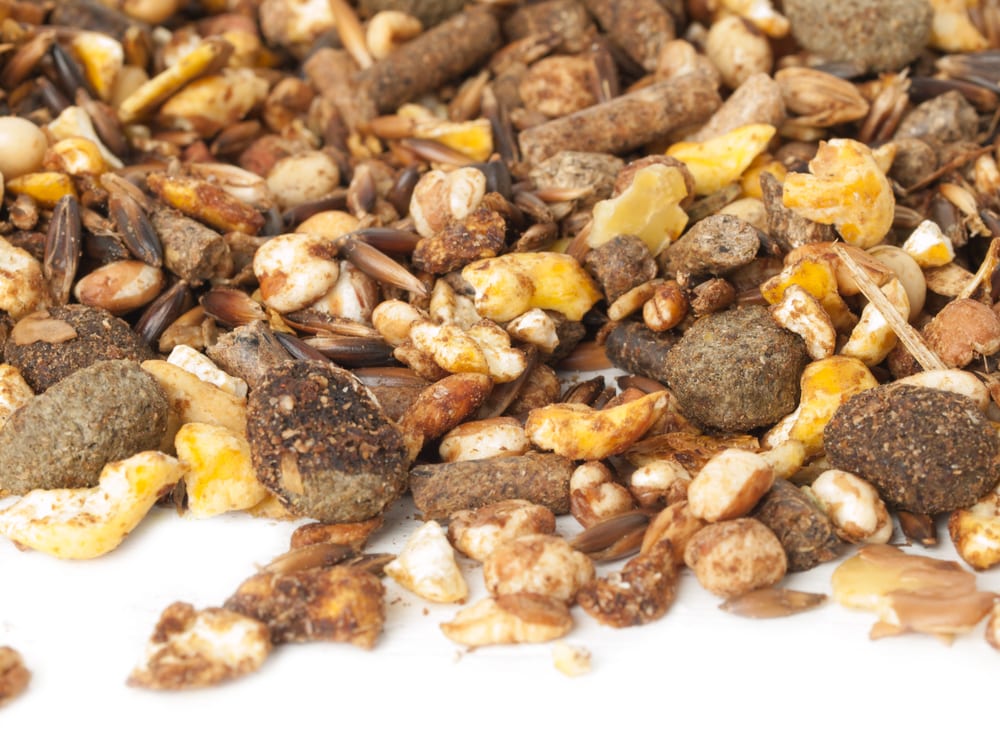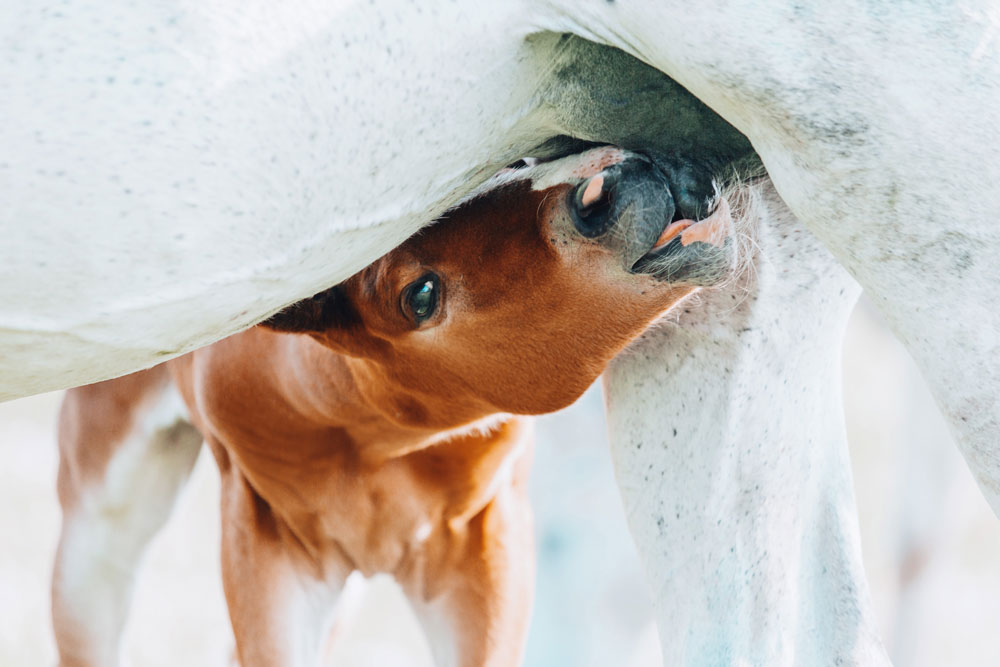Owners of hard-keeping horses tend to dread the cold winter months. That time of year is most challenging to help their horses maintain a healthy weight. A common approach to combating winter weight loss is to increase grain rations. But…is this the best approach?
While increasing the amount of grain-based feed in a hard-keeper’s diet may keep weight on in winter, it is not the most effective method and may have detrimental effects on gi tract health.
Here’s a look at why this approach should be avoided and what you should consider instead to keep weight on your hard-keeper this winter.
Increasing Horse’s Grain Can be Detrimental to Hindgut Health
Horses are designed to effectively subsist on a simple plant-based diet of grasses, stems, and other naturally occurring forages. They don’t actually need starch-heavy feed, such as oats, corn, barley, or bran in their diet for proper nutrition. In fact, these feeds, rich in simple-carbohydrates,can interfere with the correct digestive process and lead to health, behavioral, and performance problems.
The simple sugars and starches in grains need to be digested and absorbed fully by the stomach and small intestine. The praoblem is that they spend as little as 40 minutes in the stomach and a couple hours in the small intestine. Large or increased grain feeds often move too quickly through the gut to be completely digested before reaching the hindgut, especially when they’re consumed quickly.
Undigested starches from grain-based feeds in the hindgut interfere with the beneficial microbes that aid in digestion. The poor hindgi tract health that can result reduces the horse’s ability to receive full nutrition and energy from feed and may negatively impact weight – the opposite of the intended effect. It can also lead to digestive imbalance, hindgut acidosis, colonic ulcers, and even colic and laminitis.
Increase Forage for Warmth and to Maintain Weight
The
primary reason hard-keeping horses tend to lose weight in a cold winter climate is that more of their energy is diverted towards staying warm. If we don’t make changes in their care to counteract this, the result is that more energy goes towards heat production and less to maintaining body condition.
Increasing a horse’s forage – quality hay and/or beet pulp – in winter is the most effective way to help a horse stay warm and avoid dropping weight when it gets cold.
Forages are fibrous feeds which are digested through fermentation in the horse’s hindgut. Stemmy, fibrous food stays in the hindgut for several days as they are broken down by the beneficial microbes that live there and the resulting nutrients (called essential volatile fatty acids, or “VFAs”) are absorbed through the colon. This process can provide up to 70% of a horse’s energy.
Therefore, increasing a horse’s forage ration – or, even better, providing free access to hay – is the most effective and healthiest way to maintain weight in winter. The ability to continually munch nutritional, healthy hay around the clock will provide the steady energy production a horse needs to maintain all systems.
Also be sure to provide adequate shelter, and consider blanketing appropriately to require a little less work from your horse’s body to keep warm. A
good digestive support supplement may also help your horse to get
full nutrition and energy available through feed while
maintaining gi tract health.
Increase grain in winter = myth. This approach may actually have the opposite effect by decreasing digestive health, while increasing forage is a more effective and healthier method to help hard-keeping horses maintain weight in winter. 



